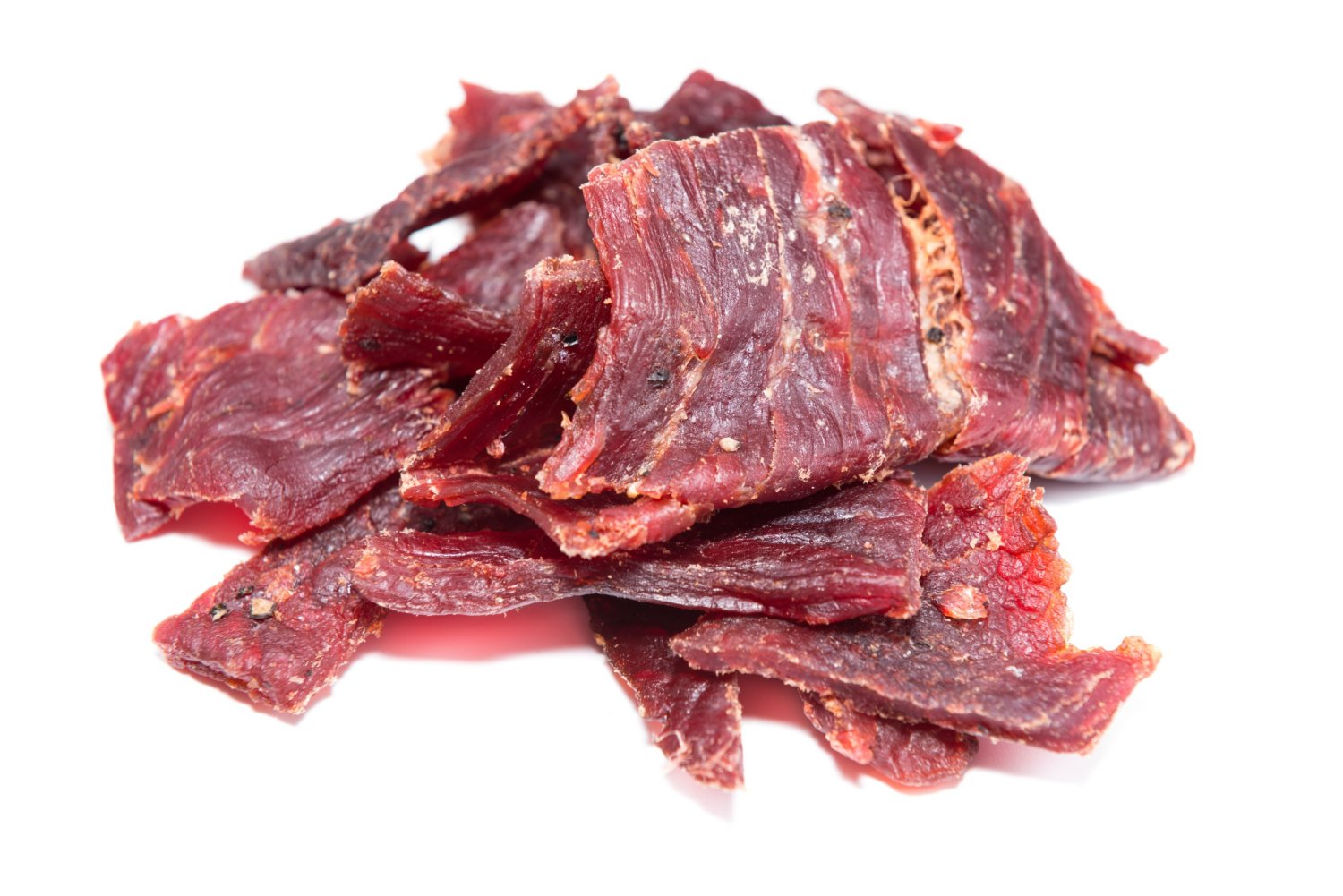
Beef jerky is back, and it has made a great reappearance as a healthy, protein-packed food full of zinc and iron. From its early days in every traveler’s and outdoors person’s pack, it is now featured on store shelves at health food shops and farmers’ markets. This also witnesses a boom in protein-rich foods across the nation.
But how healthy is this chewy treat?
Beef jerky is a great source of protein, zinc, and iron, making it an attractive choice for most rushing snackers on-the-go. However, it is processed meat loaded with sodium.
The catch lies in how they make the beef jerky. Traditional jerky relied on salt as its preserving agent, whereas today, there are such huge differences among jerky products regarding their ingredients and processing methods. As a result of this vast difference, not all beef jerky is created equal nutritionally.
Personally, I’m a HUGE fan of beef jerky, and if I’m looking for a healthy, protein-packed snack, I tend to reach for my friend Jack Links. But let’s keep going before I get hungry.
In this article, we will dive deeper and learn more about beef jerky and its many health benefits.
Disclaimer: This article is for informational purposes only and is not meant to treat or diagnose any condition. It is recommended that you speak with your doctor before starting any exercise program, making changes to your nutrition, or adding any new supplements to your regimen.
The Nutritional Value of Beef Jerky
Beef jerky offers a nutritious snacking option with a well-rounded nutrient profile. A single ounce (28 grams) packs the following:
- Iron: 8% of the DV
- Protein: 9.4 grams
- Carbs: 3.1 grams
- Selenium: 5% of the DV
- Fat: 7.3 grams
- Thiamine: 4% of the DV
- Calories: 116
- Choline: 6% of the DV
- Fiber: 0.5 grams
- Potassium: 4% of the DV
- Zinc: 21% of the DV
- Magnesium: 3% of the DV
- Phosphorus: 9% of the DV
- Riboflavin: 3% of the DV
- Folate: 9% of the DV
- Niacin: 3% of the DV
- Copper: 7% of the DV
- Vitamin B12: 12% of the DV
You’ll also find traces of manganese, molybdenum, and pantothenic acid in beef jerky.
This protein-rich, low-carb snack is suitable for many diets, including low-carb and paleo diets. Its nutrient density makes it a healthier choice than many other snack options on the market that tend to be high in carbs, sugars, and unhealthy fat.
4 Benefits of Beef Jerky
Below are some of the benefits of beef jerky you should be aware of:
1. Great source of protein
Protein plays an important role in your body’s daily functions. It builds and repairs cells and supports strong bones. Additionally (and probably the most popular benefit), it keeps your muscles and skin healthy. Unlike fats and carbs, your body can’t store protein, so you need to eat it regularly.
But let’s face it, looking for good sources of protein can be such a pain when you are on the go. That’s where beef jerky fills the need for an easily accessed, protein-packed snack, anywhere or anytime.
How much protein you need varies based on your sex, age, weight, and activity level. Some experts recommend 10 to 35% of total daily calories for protein. For someone who consumes 2,000 calories a day, this might amount to about 100g of protein.
There are nearly 10 grams of protein in 1 ounce of beef jerky. That’s a quick 10% jump toward the daily goal — no wonder it’s a smart choice for people on the move.
2. Low carb snack
Beef jerky can assist in adhering to low-carb and keto diets. In just one ounce, there are only 6 grams of carbs; thus, it is very sound for keeping low-carb snacking. This will, in turn, support you in your weight management journey.
Jerky is a good, tasty way to crush your hunger without ruining your diet. The protein in it satiates you, while the low-carb content keeps you on track for the diet.
For keto dieters, beef jerky is an easy way to get protein and fat with very minimal carbs. It’s an easy way when you have to eat quickly and you want your food to align with your specific eating plan.
3. It may prevent iron deficiency
Beef jerky possesses a dense source of heme iron, which is absorbed much more readily in the human body compared to plant-based sources of non-heme iron.
Women often display iron deficiencies or are deficient, especially when they lead active lifestyles. Indeed, athletic females who deplete their bodies frequently are advised to ensure adequate levels of heme iron through sources like red meat, which includes beef jerky, to avoid deficiency.
Common symptoms of low iron include fatigue and weakness, poor concentration, and being cold. Low iron in athletes leads to decreased performance, increased heart rates during exercises, increased illnesses, injury, and changes in mood.
4. It may boost immunity
You should take in your daily requirement of protein if you are trying to build or maintain muscle mass — even more so as you age. Sarcopenia, or the natural loss of muscle mass with age, puts one at risk of injury and leads to a decline in independence in later life.
Adequate consumption of animal protein foods, such as that available from beef jerky, is an important consideration for those moving through older ages, even if they aren’t regular participants in an exercise program.
Furthermore, if you’re in a calorie surplus with regular resistance exercises, the high protein composition of beef jerky aids in muscle growth.

